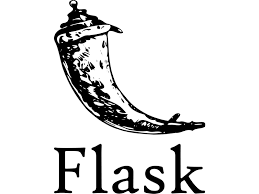Discover why Flask stands out as the superior choice for hosting websites, offering flexibility, simplicity, and powerful features for developers and businesses alike.
Introduction
Flask is a lightweight Python web framework that simplifies web application development. It offers the essentials for building web-based applications. It can also be described as a microweb framework written in Python. ‘Micro’ doesn’t mean that your whole web application has to fit into a single Python file, though it can.
Instead, it signifies Flask’s minimalistic approach – it doesn’t force specific tools or libraries on users. This empowers developers to govern how to implement things, making Flask lightweight and easily adaptable.
Advantages of Using Flask
- Lightweight and Minimalistic Architecture: Flask, a micro web framework written in Python, boasts a minimalist design that prioritizes simplicity and extensibility. Unlike monolithic frameworks that come bundled with numerous features and dependencies, Flask provides only the essentials, allowing developers to customize and expand functionality as needed. This lightweight architecture translates to faster loading times, reduced resource consumption, and enhanced performance, making Flask ideal for hosting websites, especially those with high traffic volumes.
- Flexibility and Customization: One of Flask’s greatest strengths lies in its flexibility and customization options. Developers have the freedom to structure their applications according to their preferences, without being constrained by rigid conventions imposed by the framework. Whether building a simple blog or a complex e-commerce platform, Flask empowers developers to tailor their solutions to meet specific requirements efficiently. Additionally, Flask seamlessly integrates with a myriad of extensions and libraries, enabling developers to leverage existing tools and resources to enhance functionality and productivity.
- Scalability and Performance: Scalability is a critical consideration when hosting websites, particularly as traffic volumes fluctuate over time. Flask’s lightweight architecture and efficient request-handling mechanisms make it inherently scalable, allowing websites to handle increasing loads without sacrificing performance. Furthermore, Flask applications can easily be deployed across various hosting environments, including traditional servers, cloud platforms, and containerized environments, ensuring scalability and flexibility throughout the growth lifecycle.
- Easy to Learn and Use: One of Flask’s most appealing aspects is its gentle learning curve, making it accessible to developers of all skill levels. With its intuitive API and well-documented resources, getting started with Flask is straightforward, even for beginners. The simplicity of Flask’s design promotes rapid development and iteration, enabling developers to focus on building features rather than grappling with complex framework intricacies. Moreover, Flask’s modular structure encourages best practices in code organization and maintainability, fostering long-term project sustainability.
- Active Community and Ecosystem: Flask benefits from a vibrant and supportive community of developers who actively contribute to plugins, extensions, and tutorials to enrich the ecosystem. This thriving community ensures that Flask remains up-to-date with the latest technologies and industry trends, while also providing invaluable support and guidance to newcomers and experienced developers alike. Whether seeking advice on best practices, troubleshooting issues, or exploring new ways to extend Flask’s capabilities, developers can rely on the community for assistance and collaboration.
In conclusion, Flask emerges as the preferred framework for hosting websites, offering a winning combination of flexibility, simplicity, and powerful features. Its lightweight architecture, coupled with its emphasis on customization and scalability, makes it an ideal choice for developers seeking to build robust and efficient web applications. Furthermore, Flask’s ease of use and vibrant community contribute to its appeal, ensuring continued relevance and adoption in the dynamic field of web development.
Would you like to explore more such informative articles and blogs? We provide a range of informative articles across different domains. Subscribe today to be part of our community!


